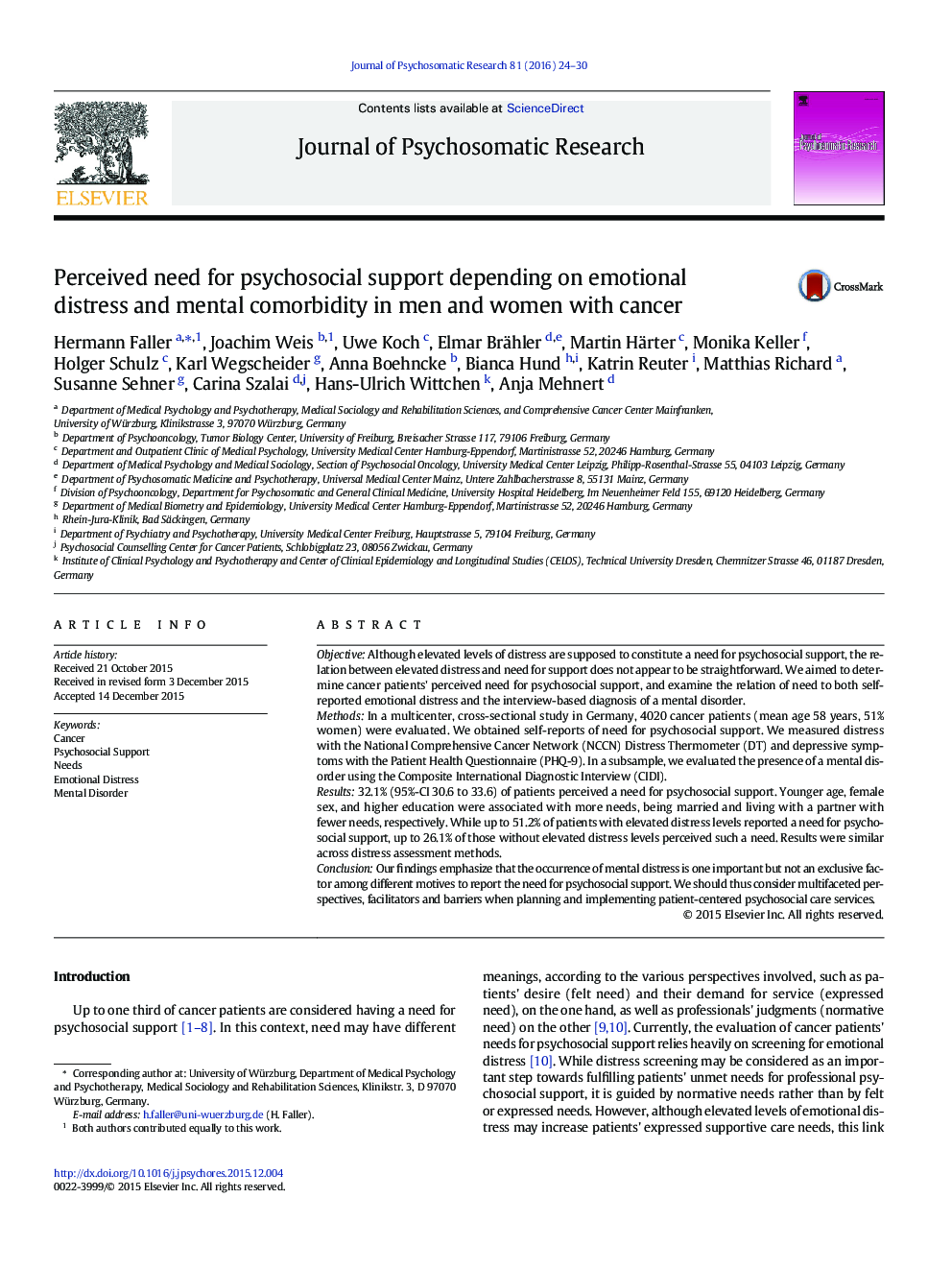| کد مقاله | کد نشریه | سال انتشار | مقاله انگلیسی | نسخه تمام متن |
|---|---|---|---|---|
| 949183 | 1475914 | 2016 | 7 صفحه PDF | دانلود رایگان |
• We evaluated the need for psychosocial support in a representative sample of more than 4.000 cancer patients.
• We also assessed both self-reported emotional distress and interview-based diagnosis of a mental disorder.
• About half of those distressed, but up to a quarter of those not distressed perceived a supportive need.
• This relation proved similar in men and women, although women reported more needs.
• When designing psycho-oncological care, not only distress levels, but also patients’ felt needs should be taken in account.
ObjectiveAlthough elevated levels of distress are supposed to constitute a need for psychosocial support, the relation between elevated distress and need for support does not appear to be straightforward. We aimed to determine cancer patients' perceived need for psychosocial support, and examine the relation of need to both self-reported emotional distress and the interview-based diagnosis of a mental disorder.MethodsIn a multicenter, cross-sectional study in Germany, 4020 cancer patients (mean age 58 years, 51% women) were evaluated. We obtained self-reports of need for psychosocial support. We measured distress with the National Comprehensive Cancer Network (NCCN) Distress Thermometer (DT) and depressive symptoms with the Patient Health Questionnaire (PHQ-9). In a subsample, we evaluated the presence of a mental disorder using the Composite International Diagnostic Interview (CIDI).Results32.1% (95%-CI 30.6 to 33.6) of patients perceived a need for psychosocial support. Younger age, female sex, and higher education were associated with more needs, being married and living with a partner with fewer needs, respectively. While up to 51.2% of patients with elevated distress levels reported a need for psychosocial support, up to 26.1% of those without elevated distress levels perceived such a need. Results were similar across distress assessment methods.ConclusionOur findings emphasize that the occurrence of mental distress is one important but not an exclusive factor among different motives to report the need for psychosocial support. We should thus consider multifaceted perspectives, facilitators and barriers when planning and implementing patient-centered psychosocial care services.
Journal: Journal of Psychosomatic Research - Volume 81, February 2016, Pages 24–30
